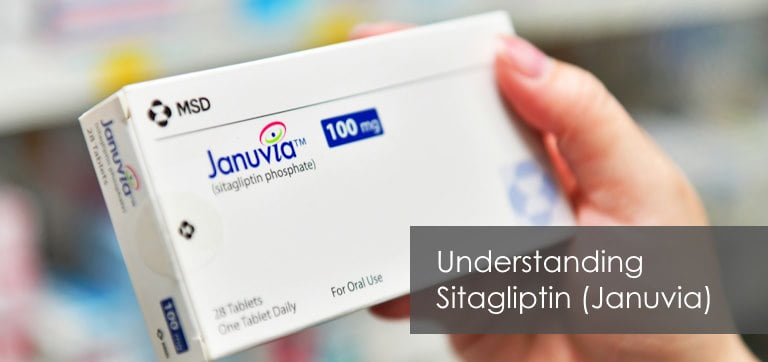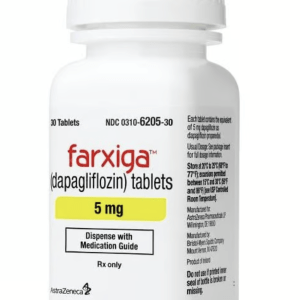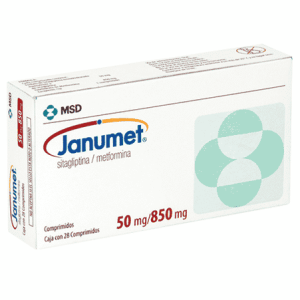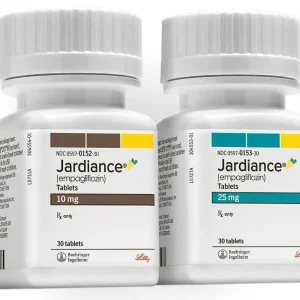Description
Januvia (Sitagliptin) Reviews
Januvia (sitagliptin) is a popular medication prescribed for the management of type 2 diabetes. This review will explore the medication’s effectiveness, side effects, dosage, and overall patient experience. We will also address frequently asked questions about Januvia, including its weight loss potential, foods to avoid, and available alternatives.
Januvia Side Effects
Like any medication, Januvia comes with potential side effects. Common side effects of Januvia include:
- Headache
- Upper respiratory infection
- Nasopharyngitis
- Hypoglycemia (especially when combined with other antidiabetic drugs)
- Stomach discomfort and diarrhea
More severe side effects of Januvia can include:
- Pancreatitis
- Severe joint pain
- Allergic reactions, including rash and swelling
It’s crucial for patients to monitor for these side effects and consult with their healthcare provider if they experience any unusual symptoms.
Januvia Weight Loss
One of the frequently discussed topics among patients is whether Januvia causes weight loss. Januvia is not primarily prescribed for weight loss; however, some patients may experience slight weight reduction. This effect varies from person to person and is not guaranteed. More research is needed to conclusively determine the weight loss effects of Januvia.
Januvia Dosage and Dosing Information
The typical dosage of Januvia is 100 mg once daily, taken with or without food. Januvia dosing should be personalized based on the patient’s medical condition and response to treatment. Patients with renal impairment may require dose adjustments. It’s important to follow the dosing instructions provided by your healthcare provider to ensure optimal blood sugar control.
Foods to Avoid While Taking Januvia
While there are no specific foods that must be avoided while taking Januvia, maintaining a balanced diet is crucial for managing diabetes effectively. Patients are advised to avoid high-sugar foods and beverages, excessive alcohol, and foods high in unhealthy fats. A healthy diet can enhance the effectiveness of Januvia and help manage blood sugar levels more efficiently.
Side Effects of Januvia with Metformin
Januvia is often prescribed in combination with metformin, another antidiabetic medication. While this combination can be effective, it can also increase the likelihood of side effects. Common side effects of Januvia with metformin include:
- Gastrointestinal issues (nausea, diarrhea)
- Hypoglycemia
- Lactic acidosis (a rare but serious condition associated with metformin)
Patients should be aware of these potential side effects and consult their healthcare provider if they experience any adverse reactions.
How Does Januvia Work?
Januvia works by inhibiting the enzyme dipeptidyl peptidase-4 (DPP-4). This inhibition increases the levels of incretin hormones, which help regulate blood sugar by increasing insulin release and decreasing glucagon levels. The Januvia mechanism of action is effective in managing blood sugar levels in patients with type 2 diabetes.
Januvia Alternatives
There are several alternatives to Januvia for managing type 2 diabetes. These alternatives include:
- Metformin
- GLP-1 receptor agonists (e.g., liraglutide)
- SGLT2 inhibitors (e.g., canagliflozin)
- Sulfonylureas (e.g., glipizide)
Patients should discuss with their healthcare provider to determine the best alternative based on their specific medical needs and treatment goals.
Januvia Patient Assistance
For patients who struggle with the cost of Januvia, there are patient assistance programs available. These programs can provide financial assistance or discounts to make the medication more affordable. Patients should inquire with their healthcare provider or pharmacist about Januvia patient assistance options.
Conclusion
In summary, Januvia (sitagliptin) is a valuable medication for managing type 2 diabetes, with a well-established mechanism of action and a generally favorable side effect profile. Patients should be aware of the potential side effects, dosage requirements, and the importance of maintaining a healthy diet while on Januvia. For those experiencing financial difficulties, patient assistance programs can help offset the cost. Always consult with your healthcare provider for personalized advice and treatment plans.






Reviews
There are no reviews yet.